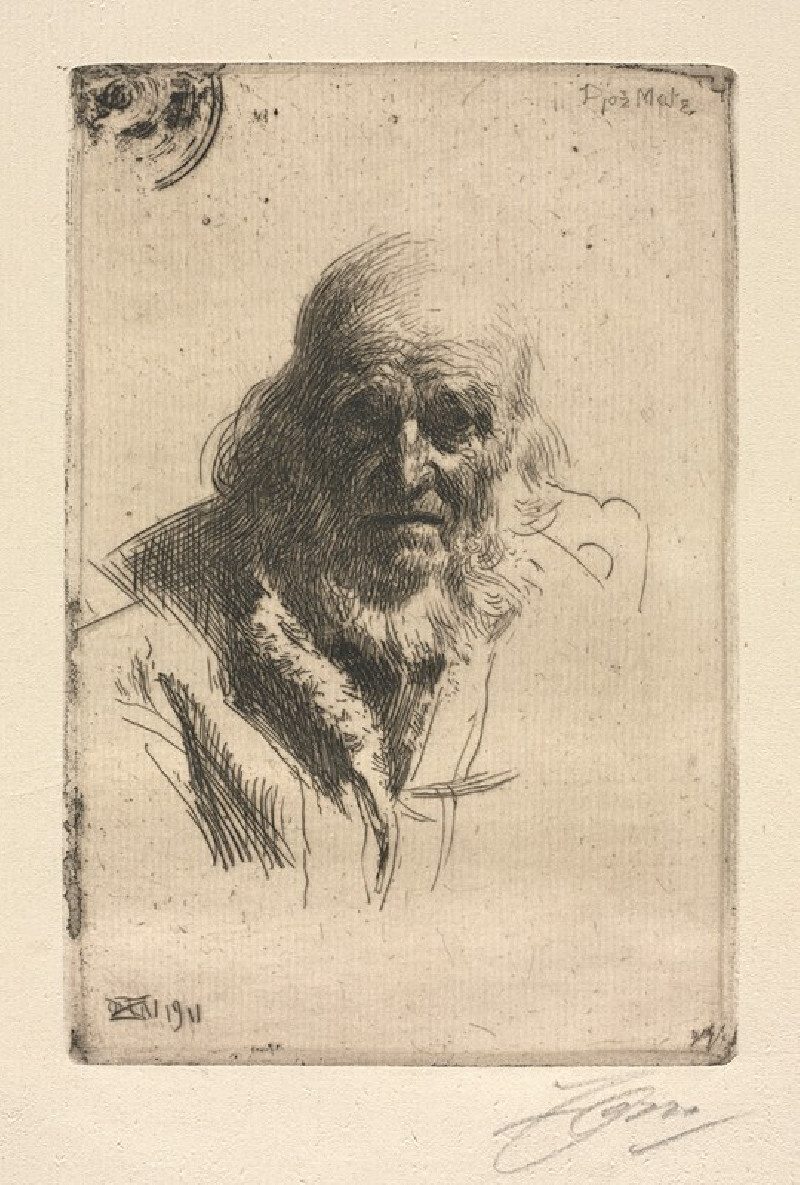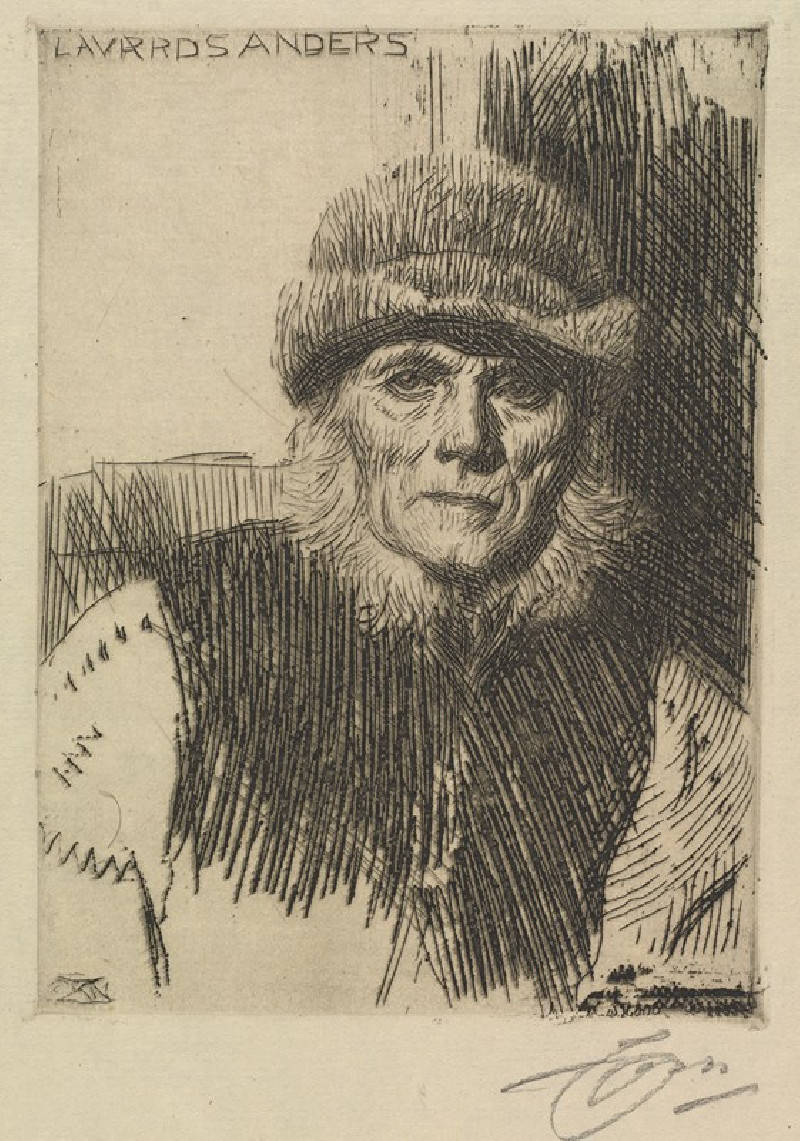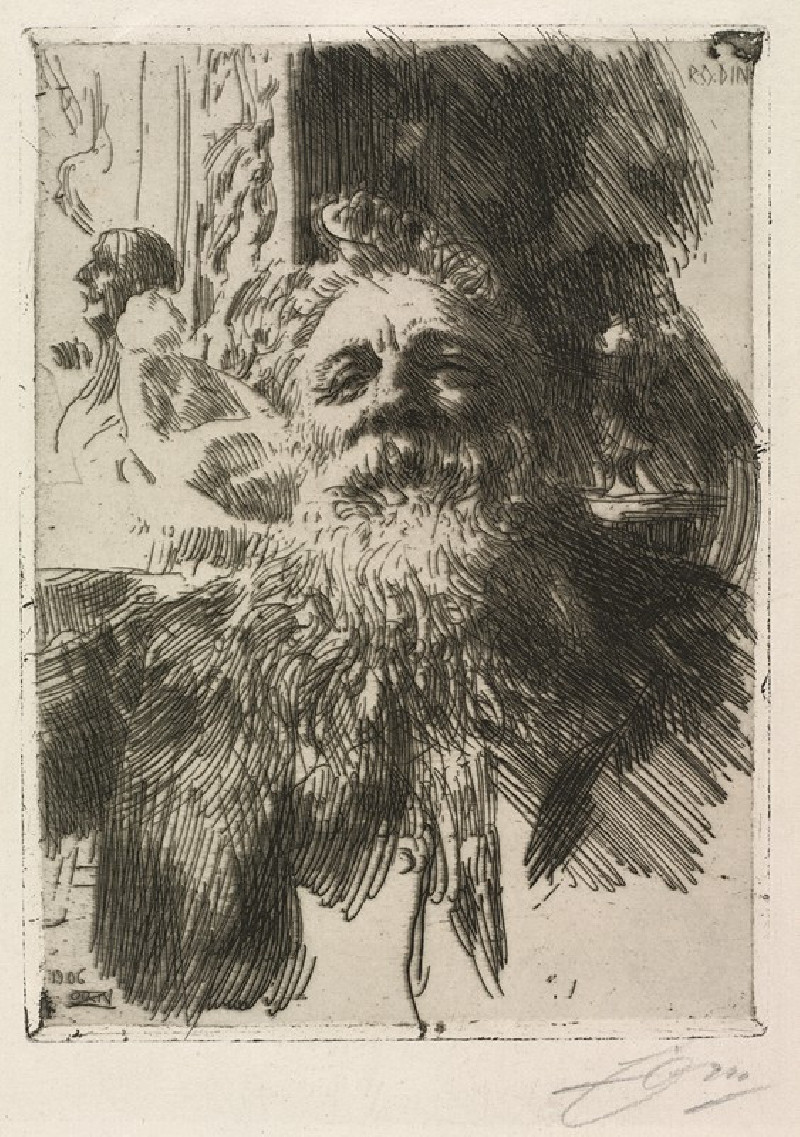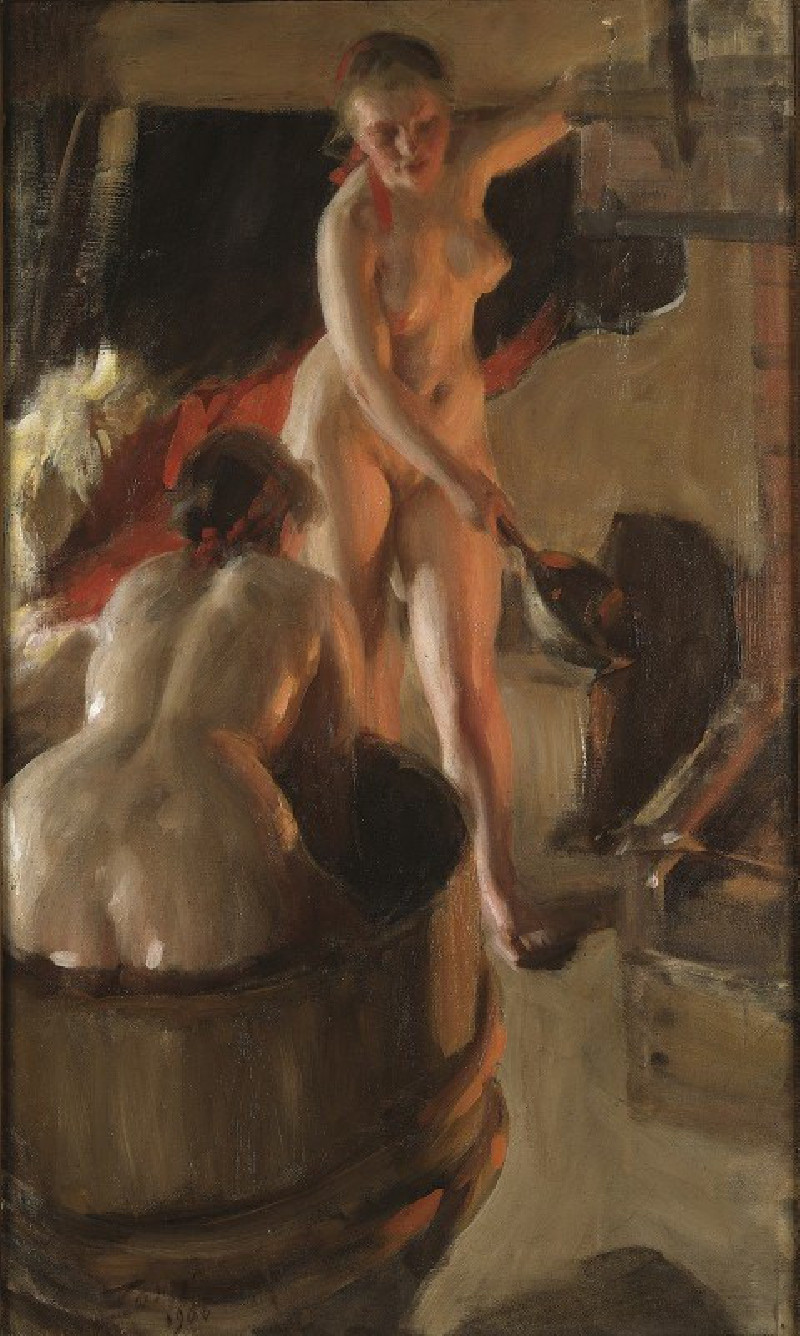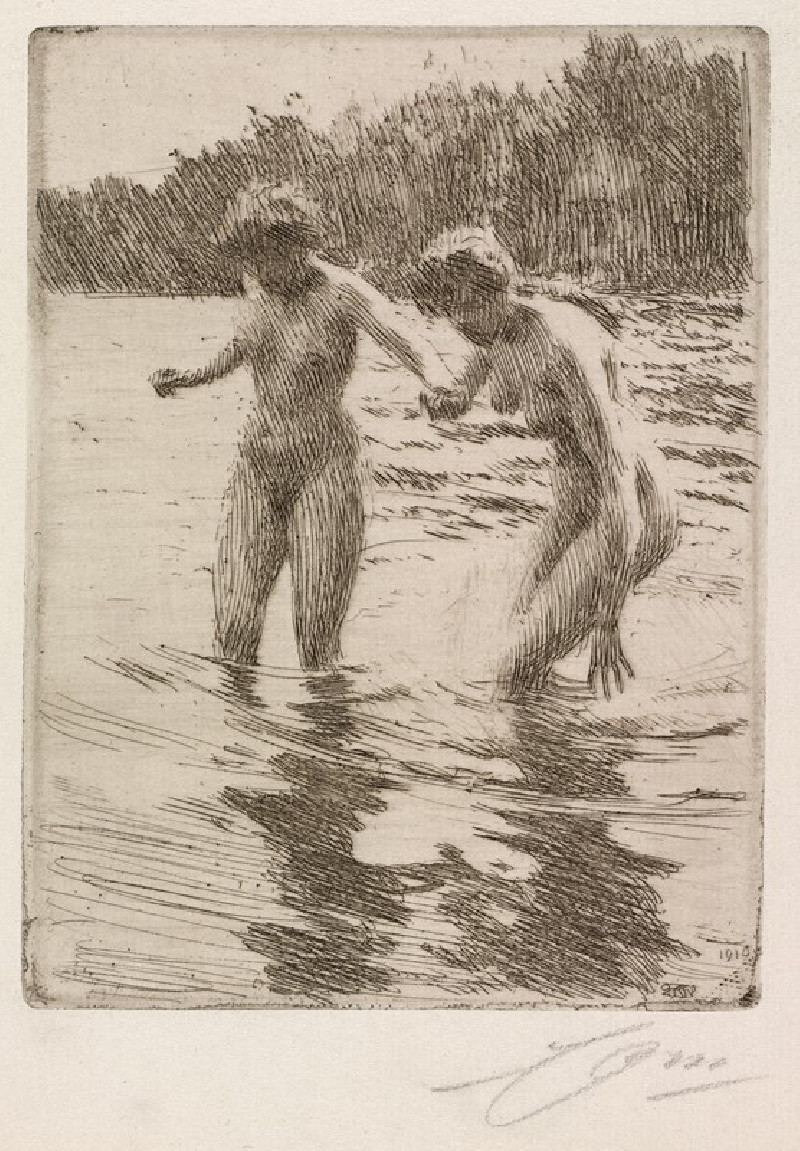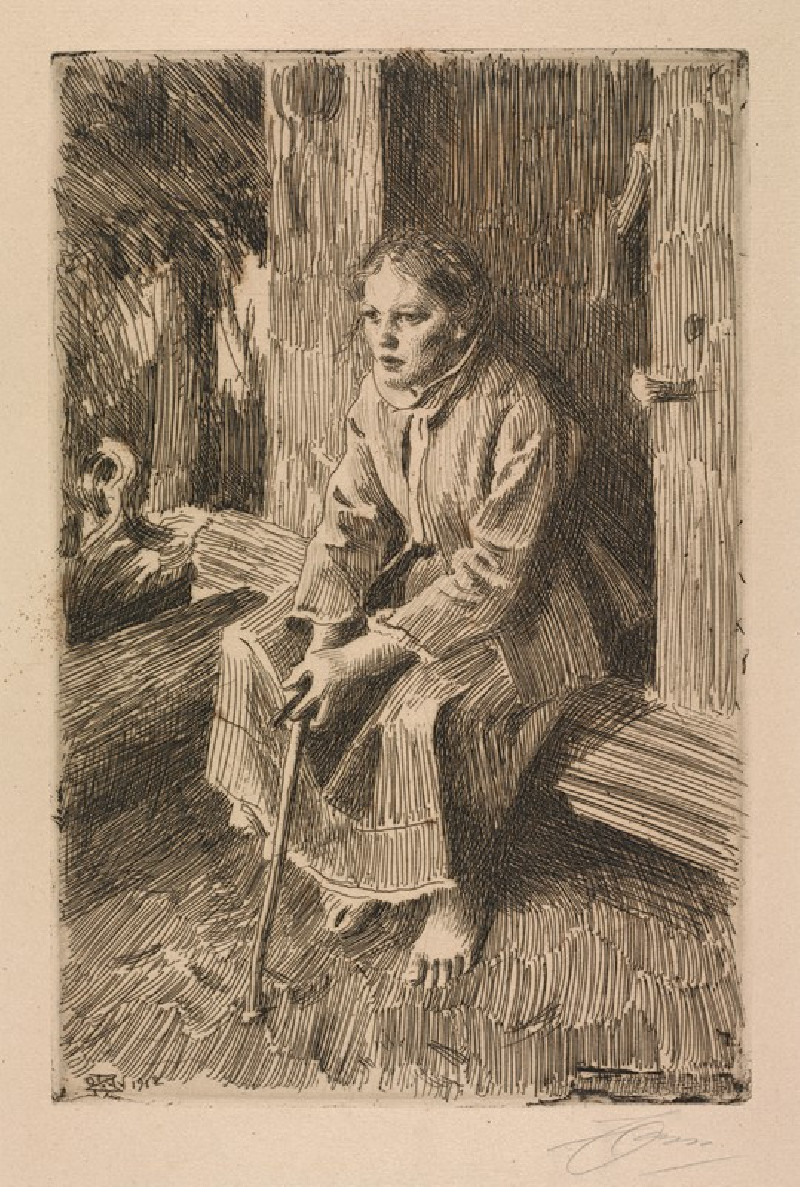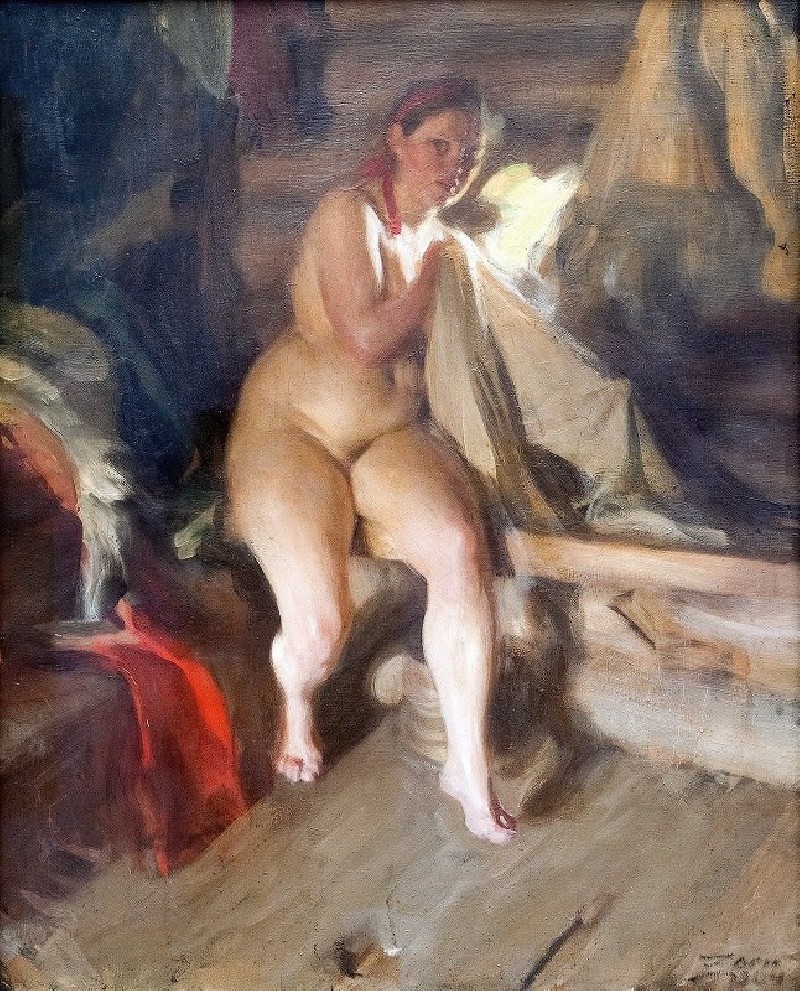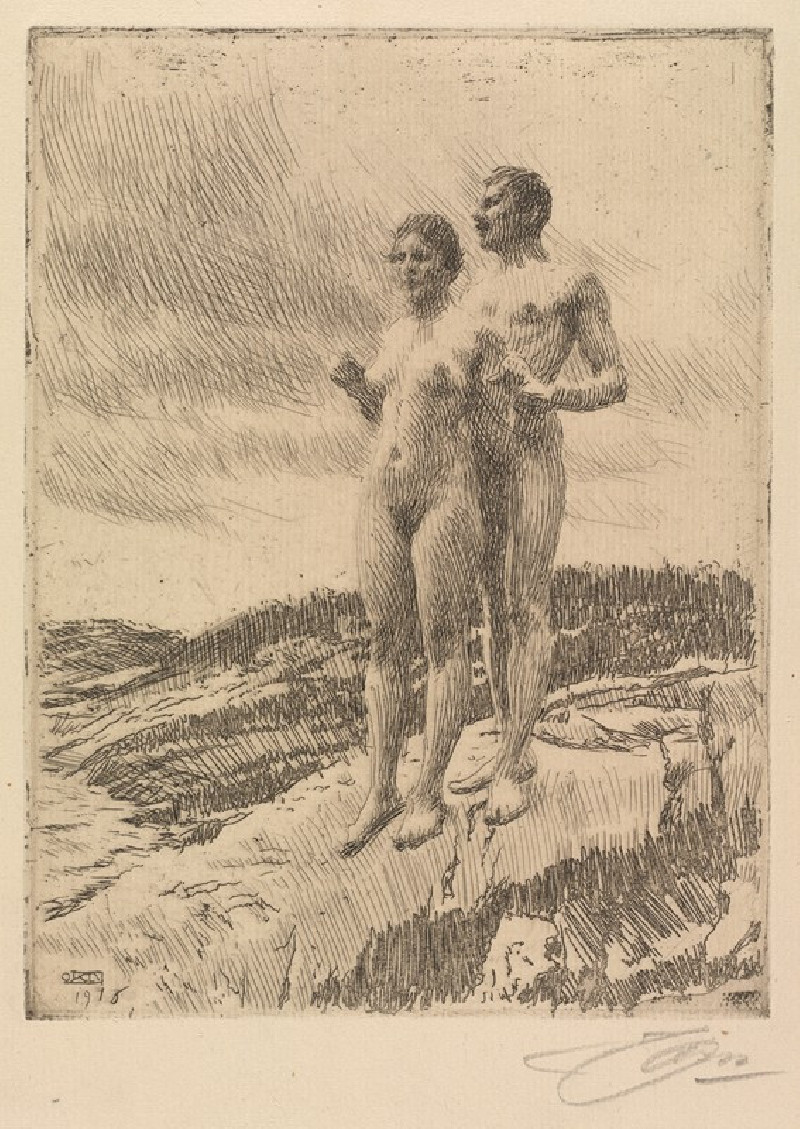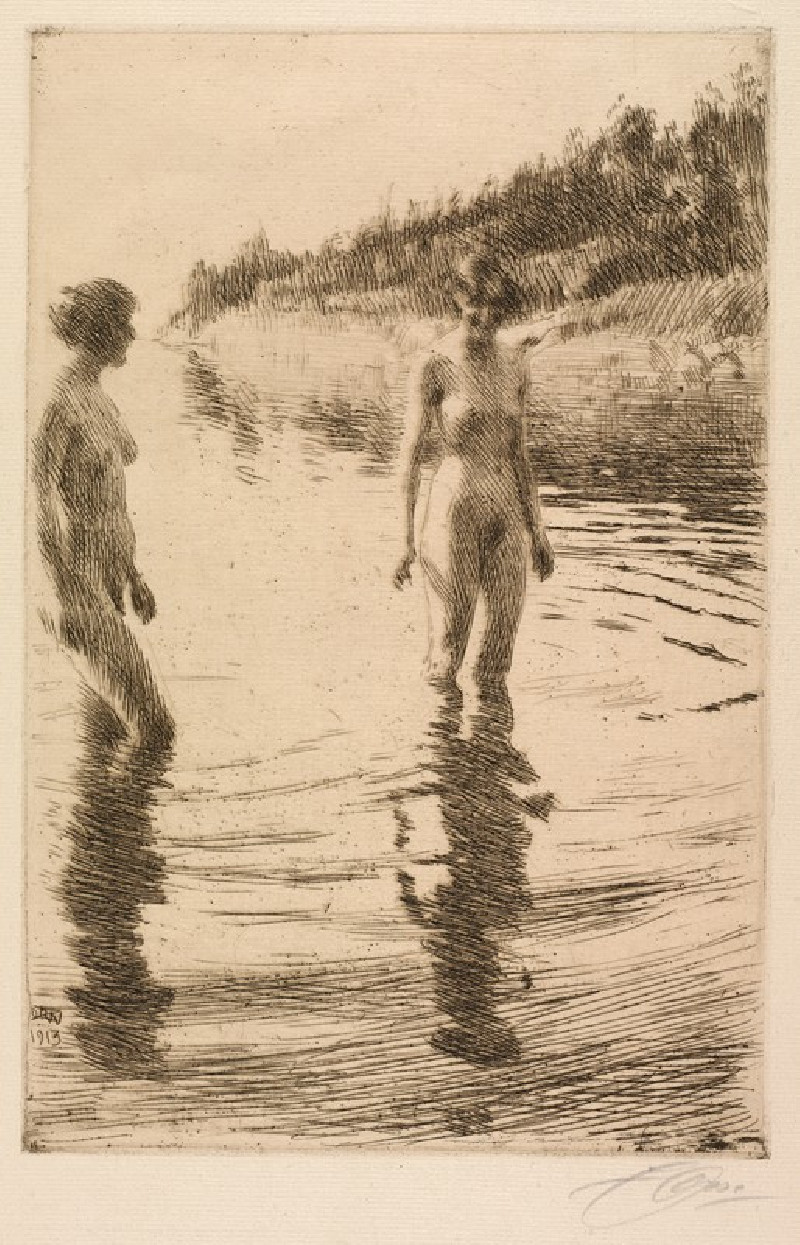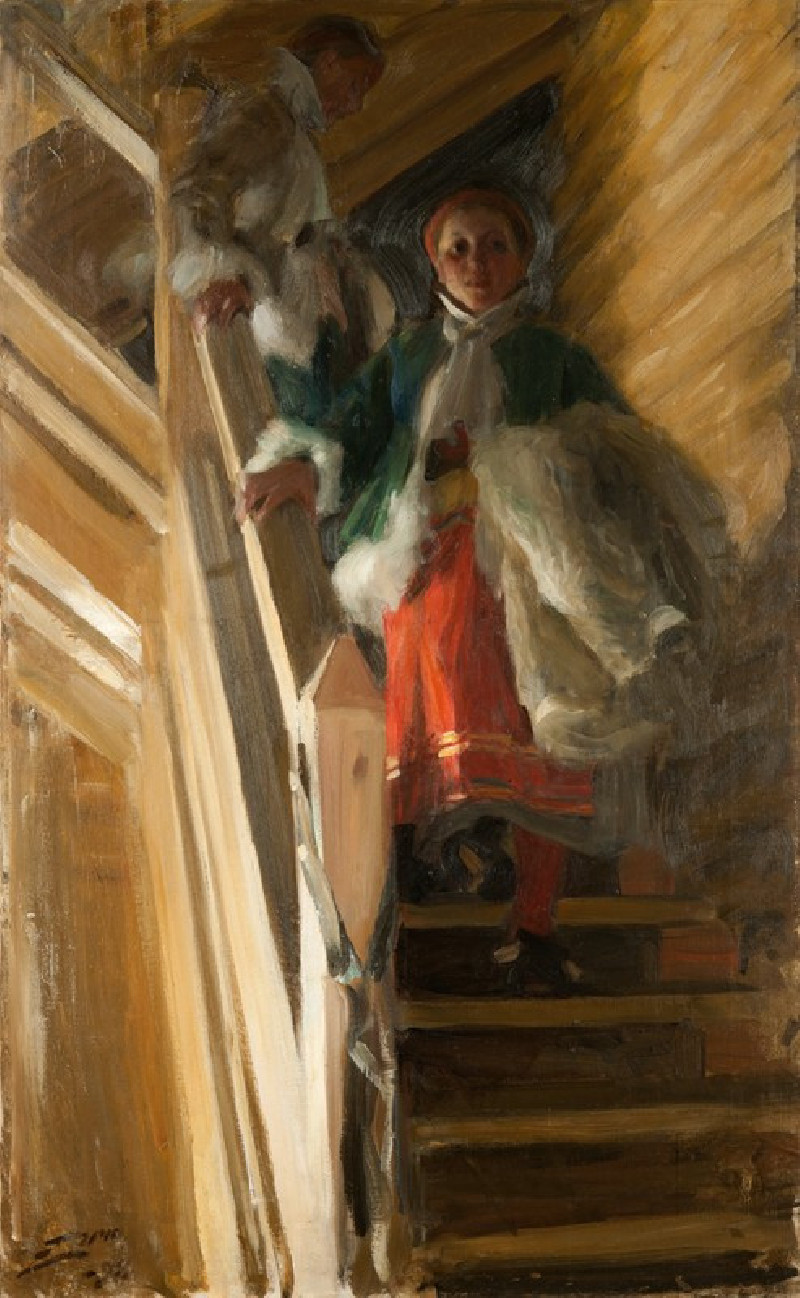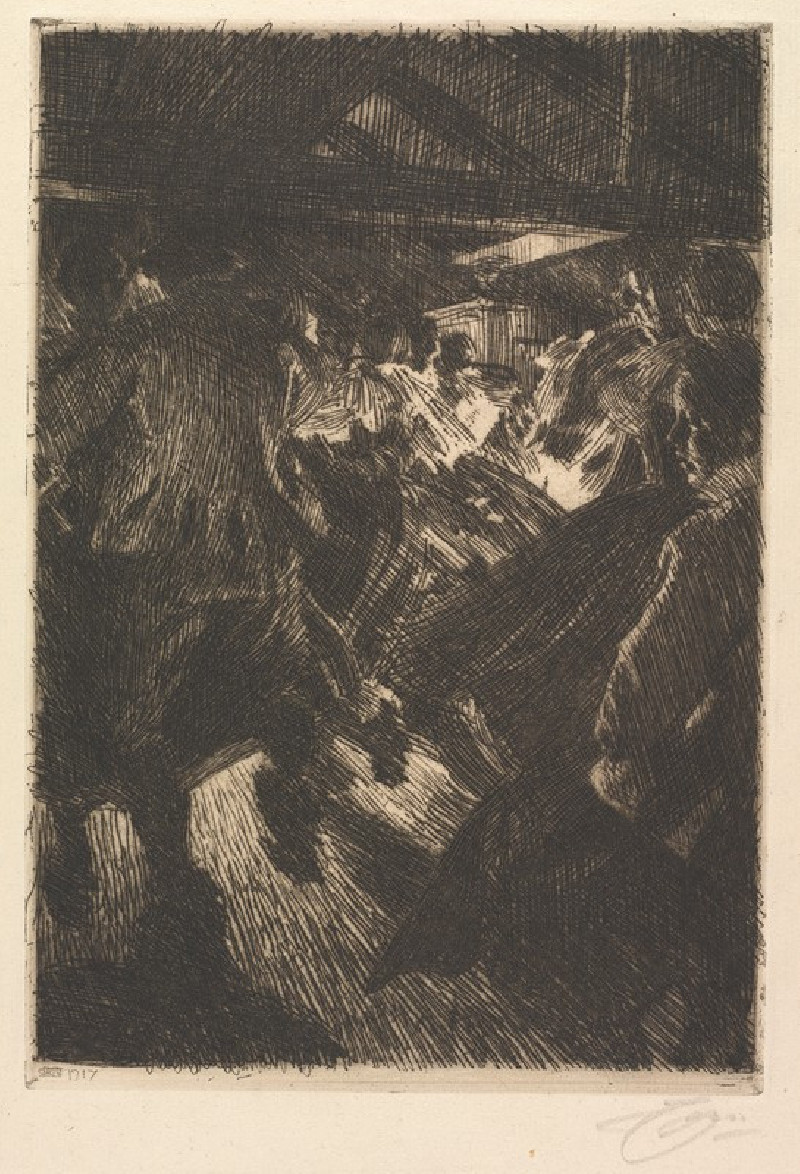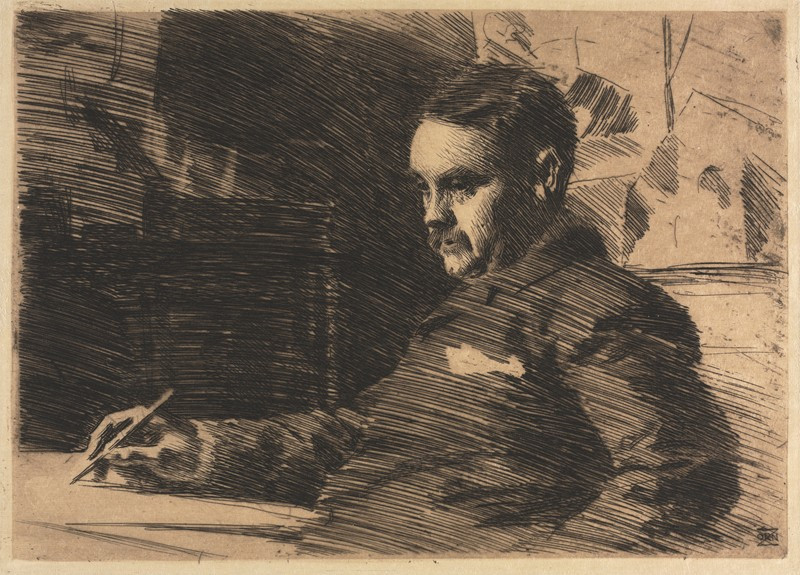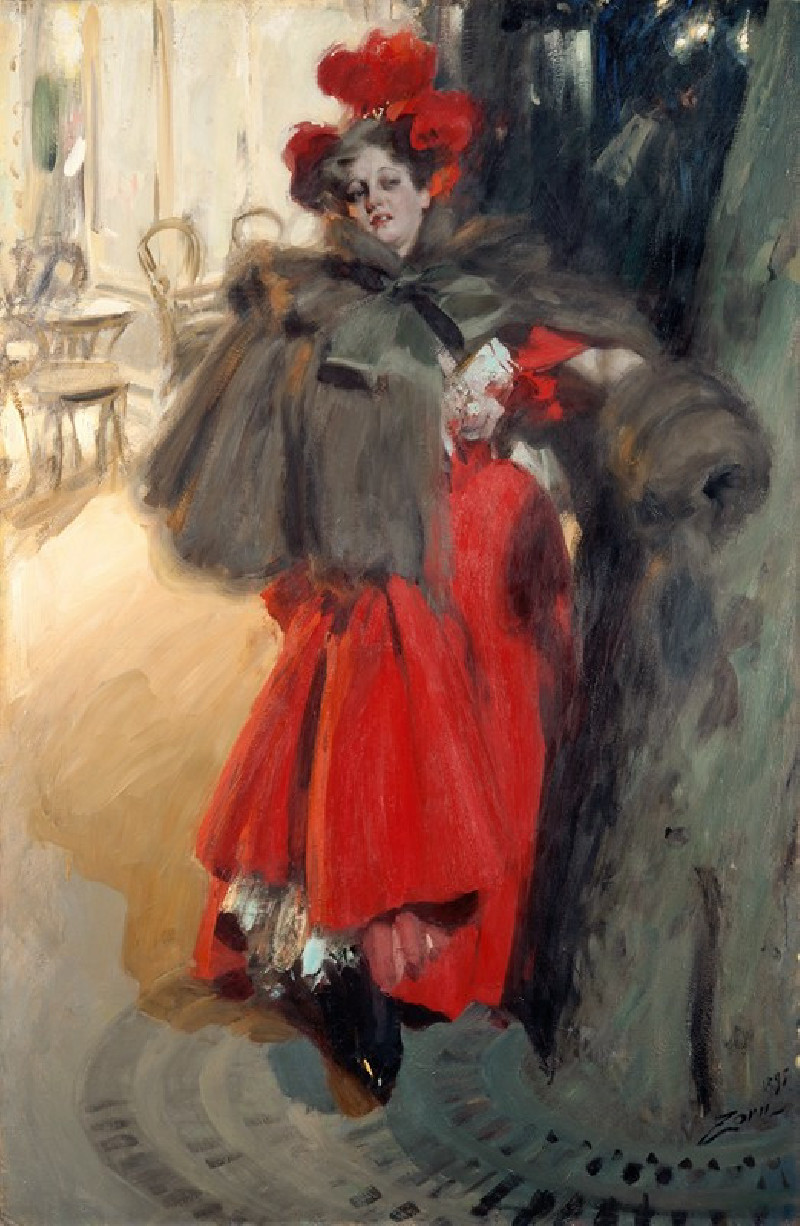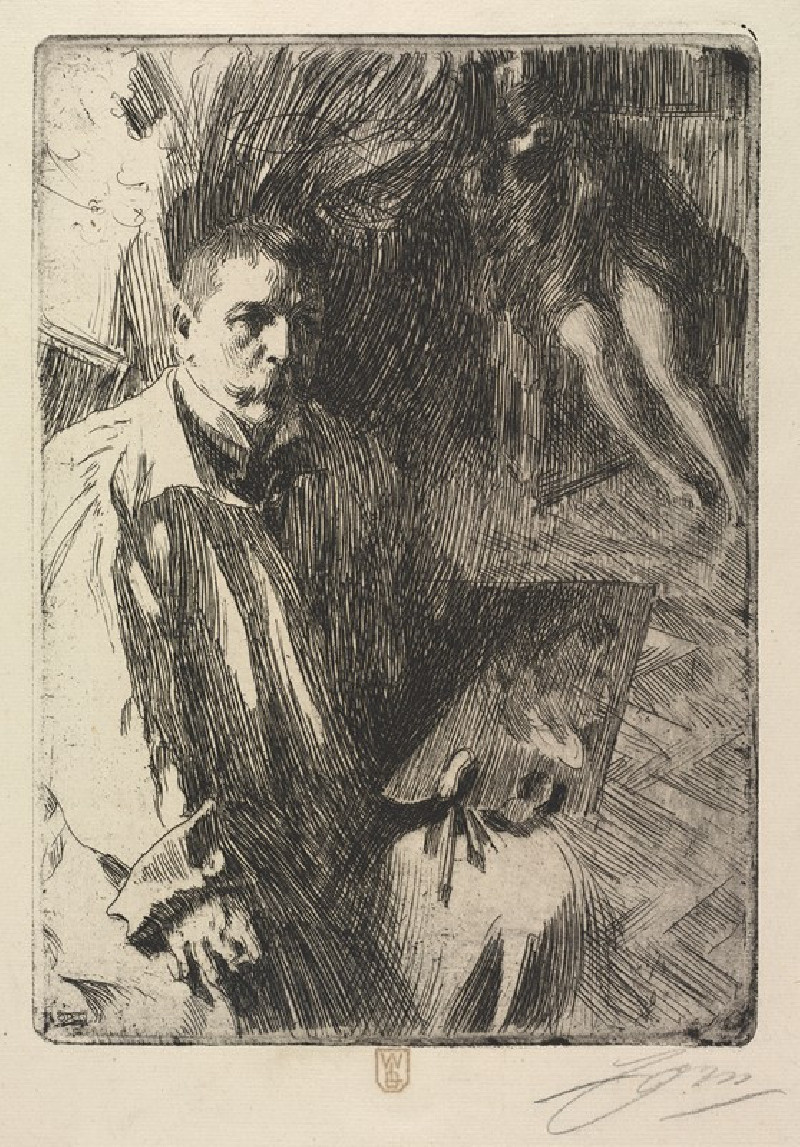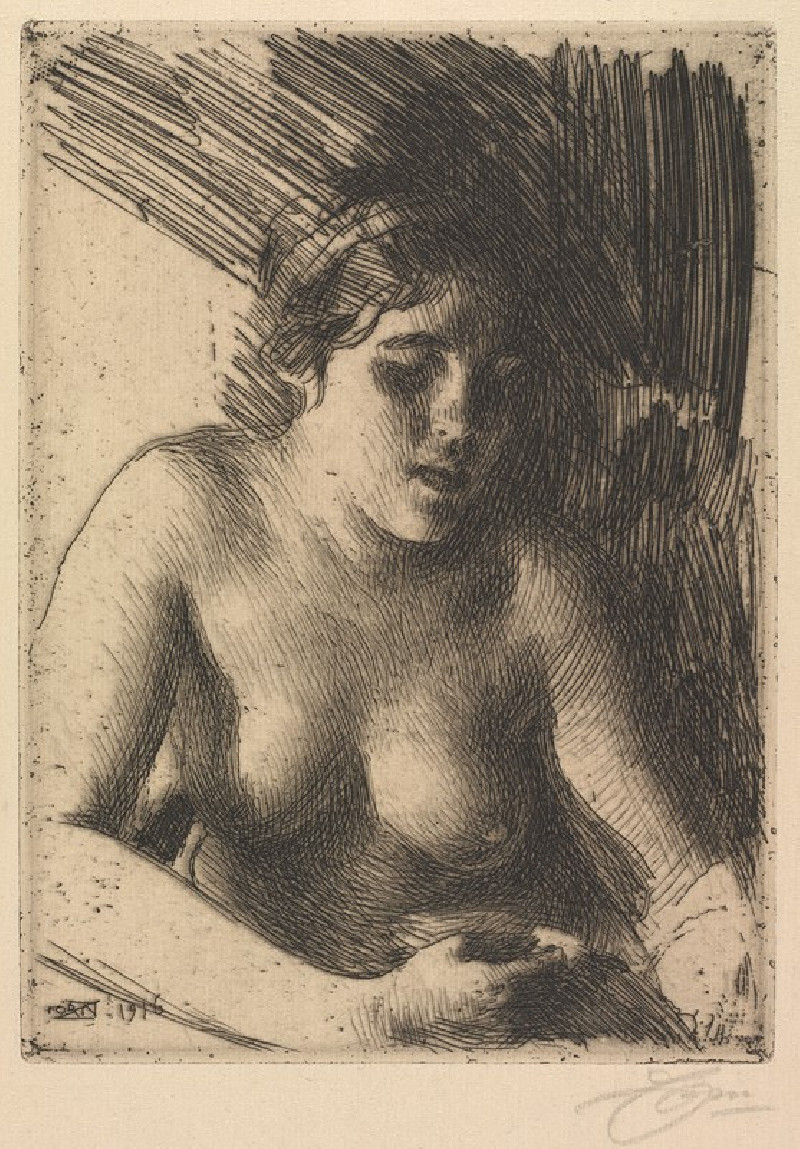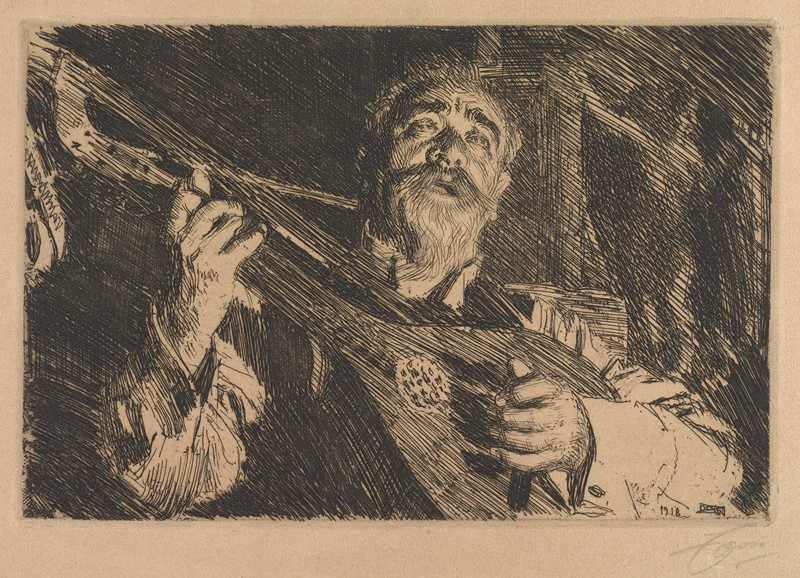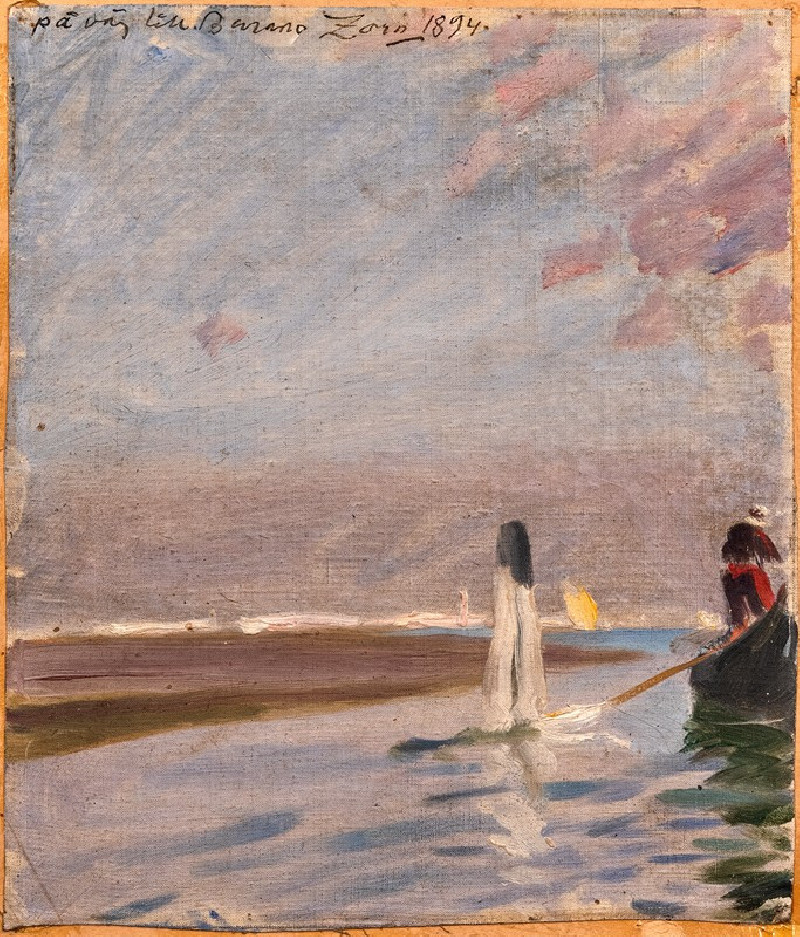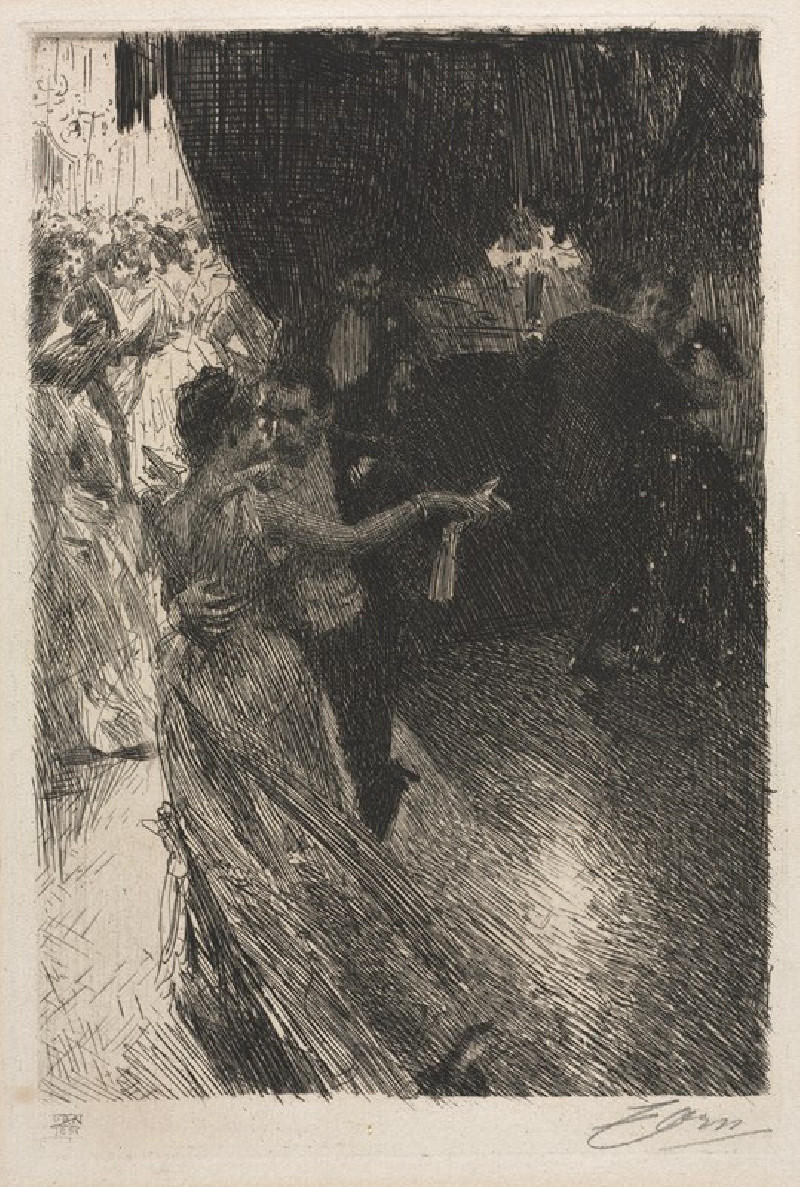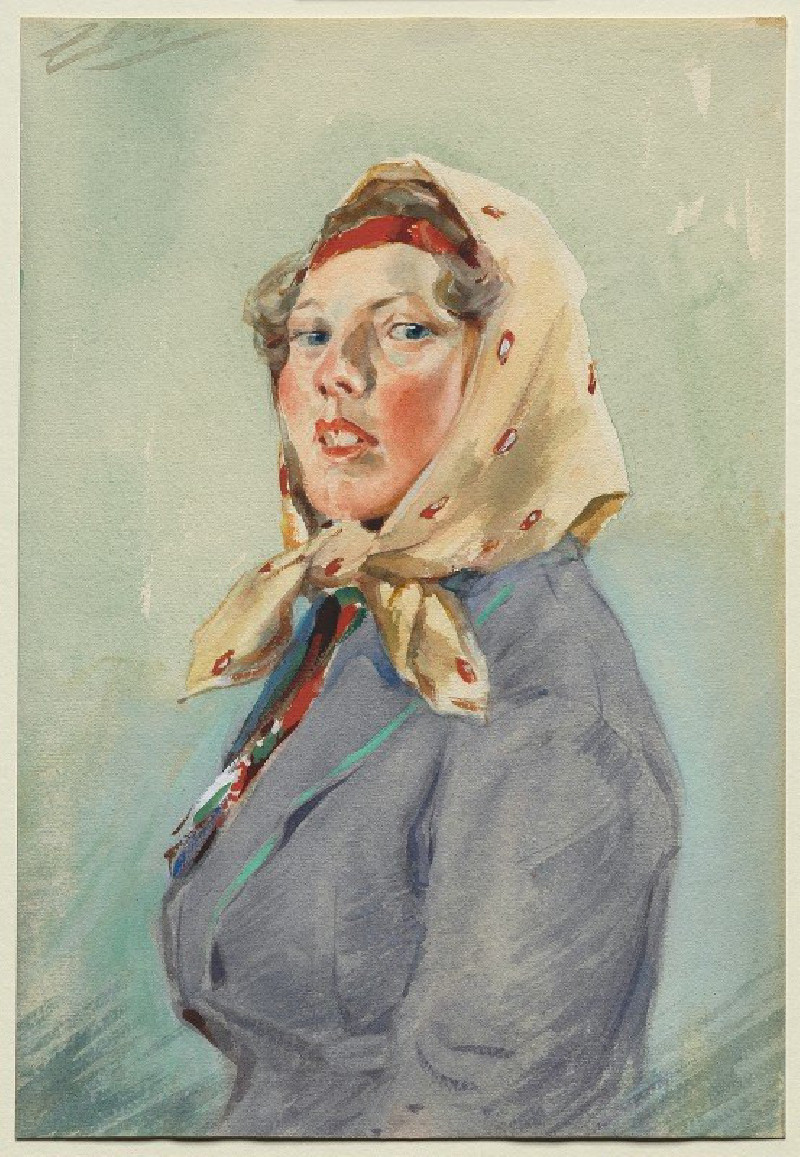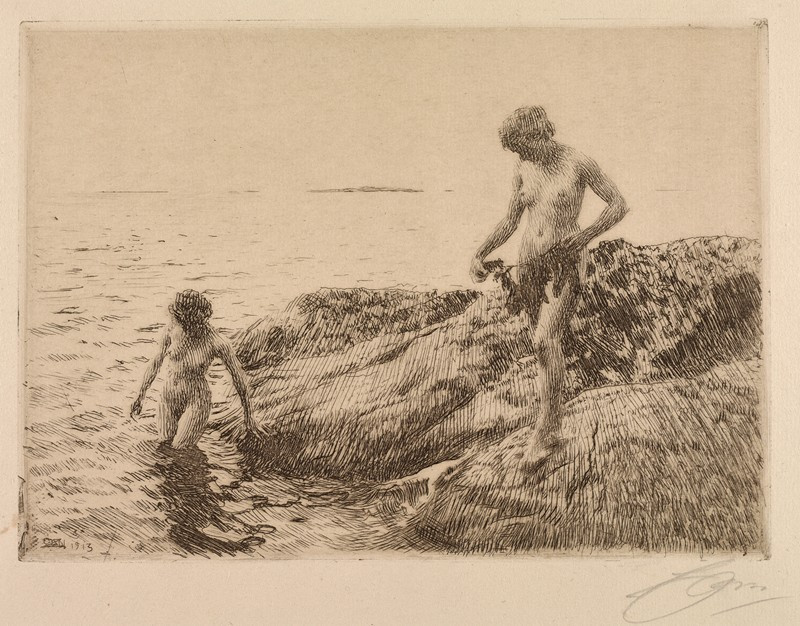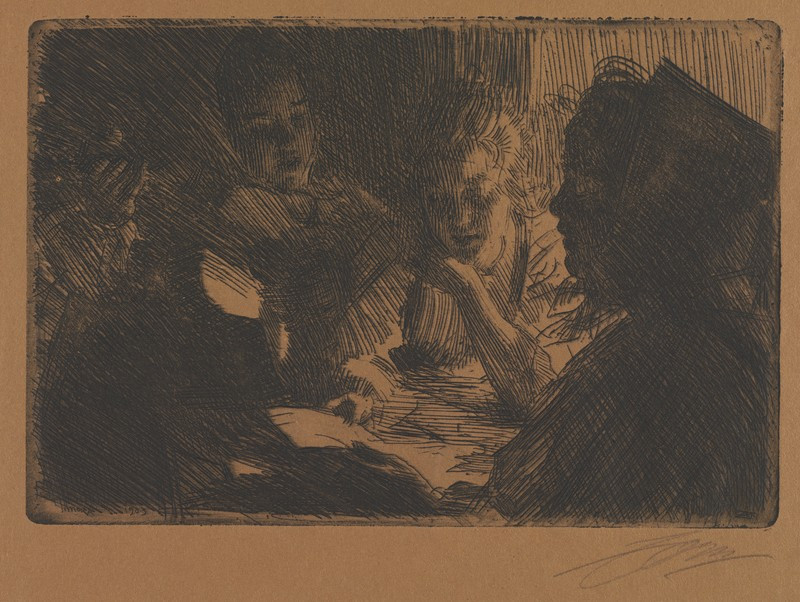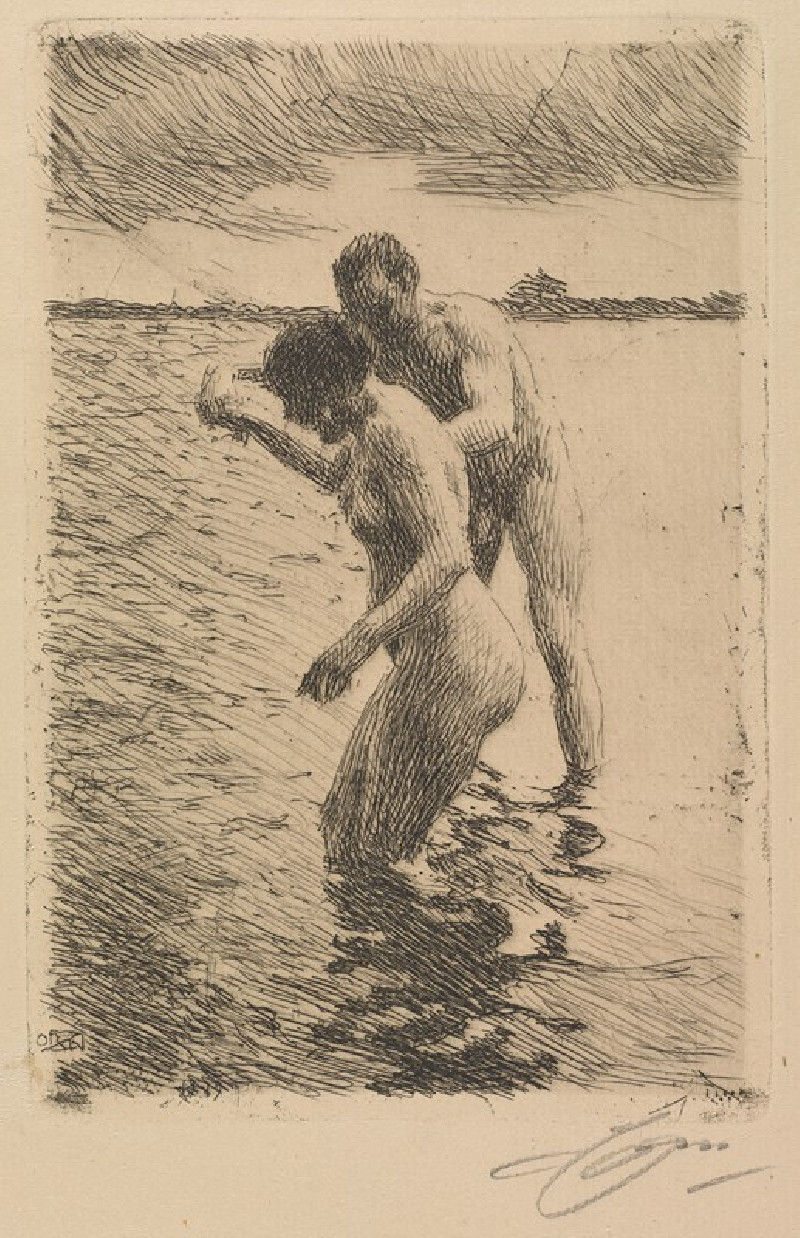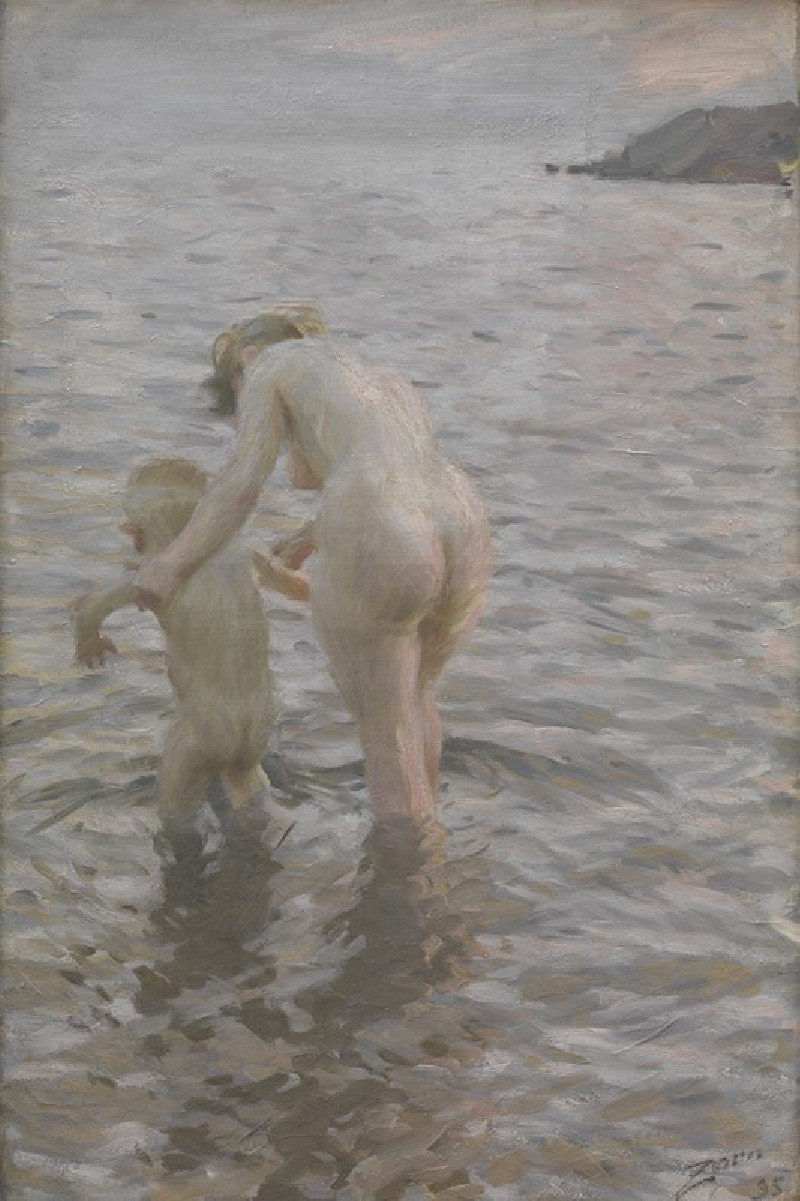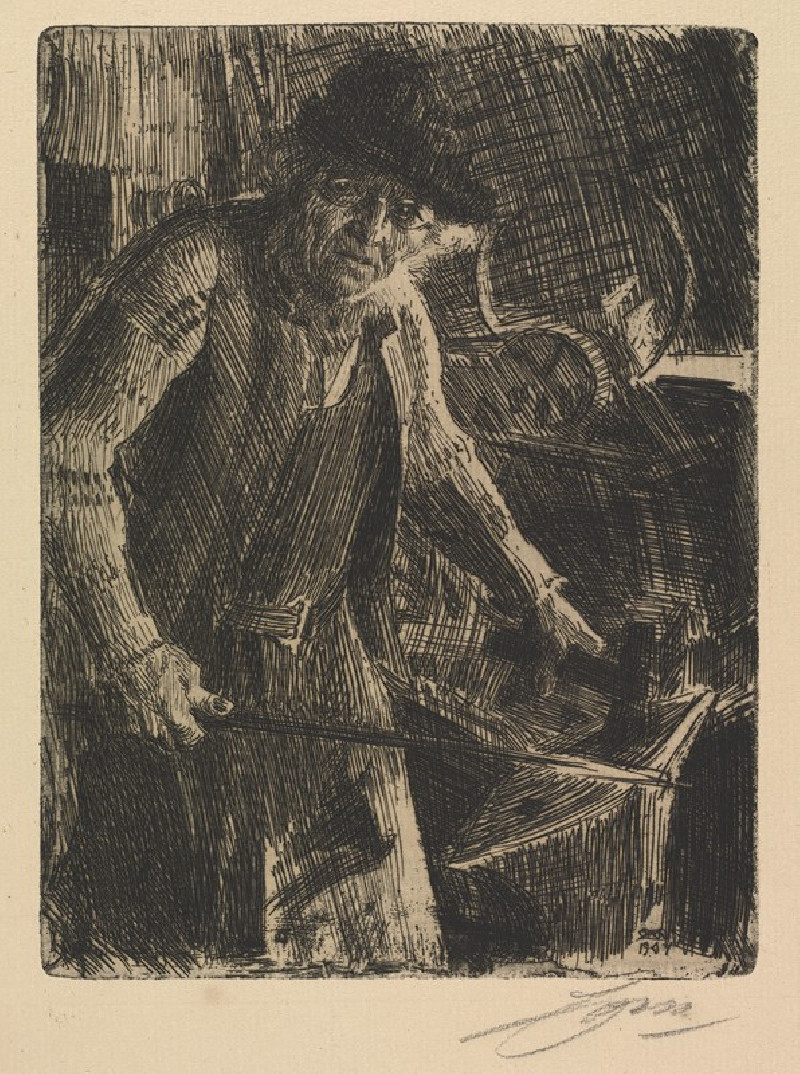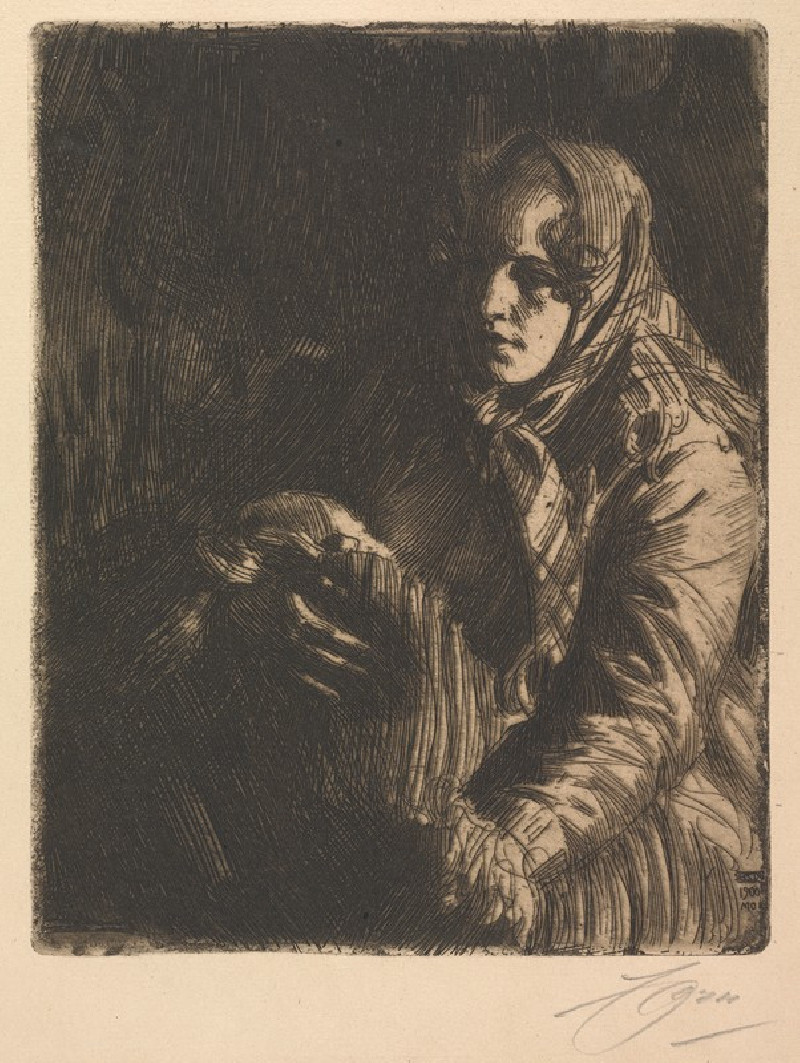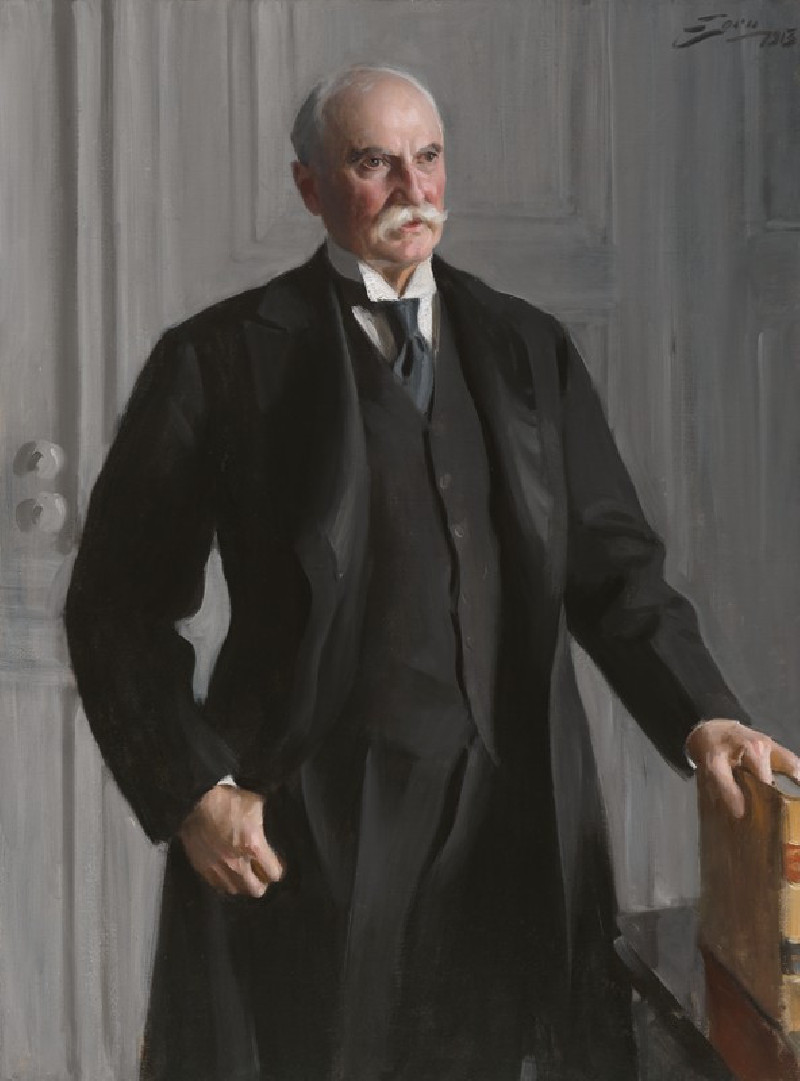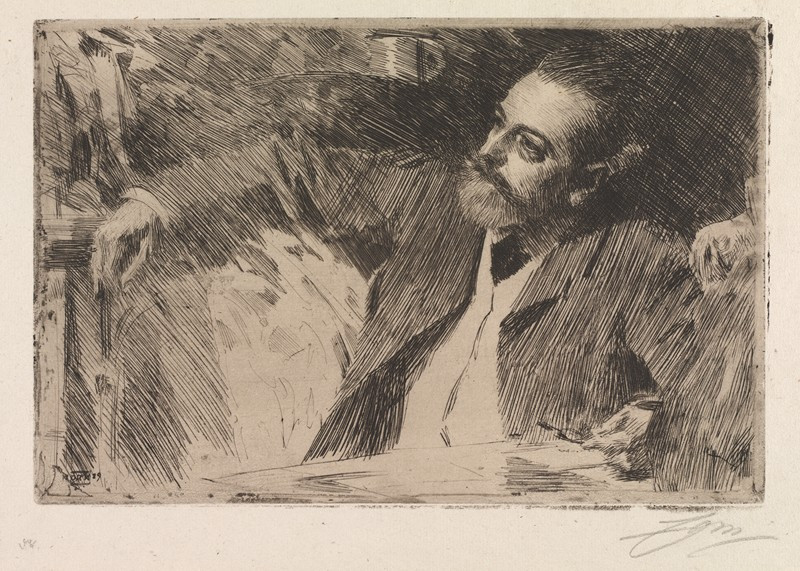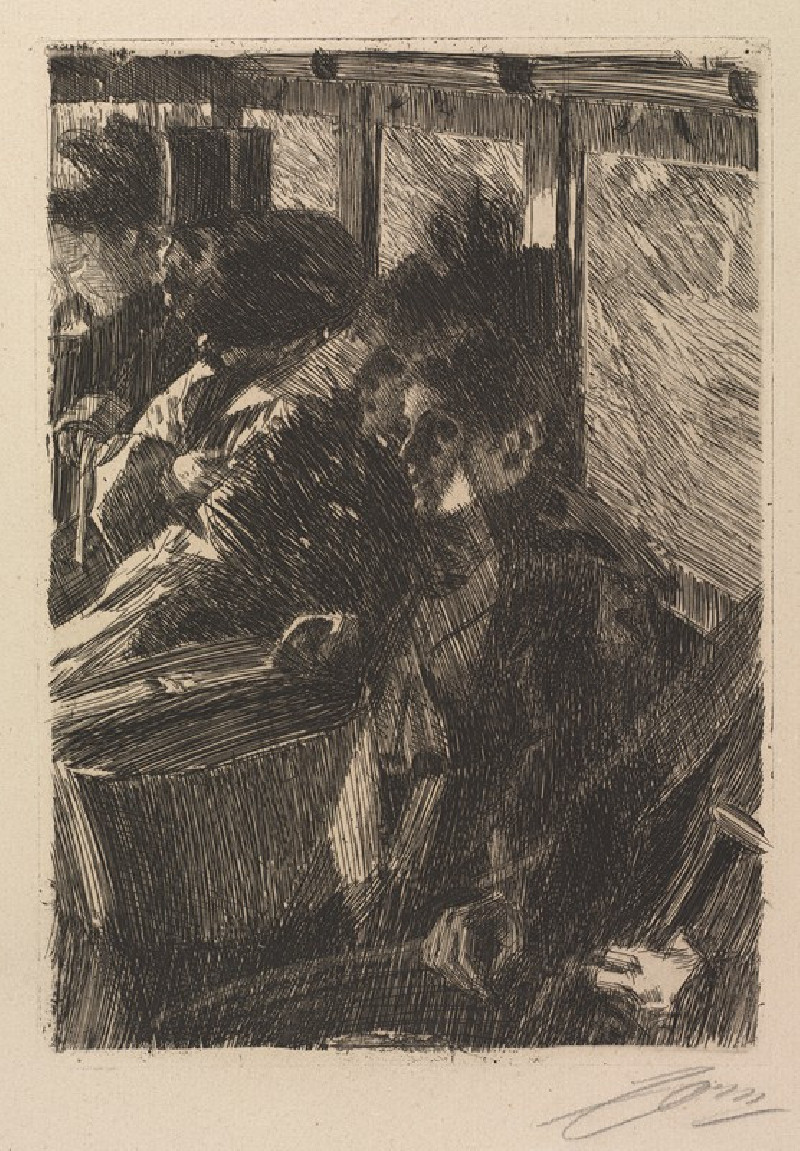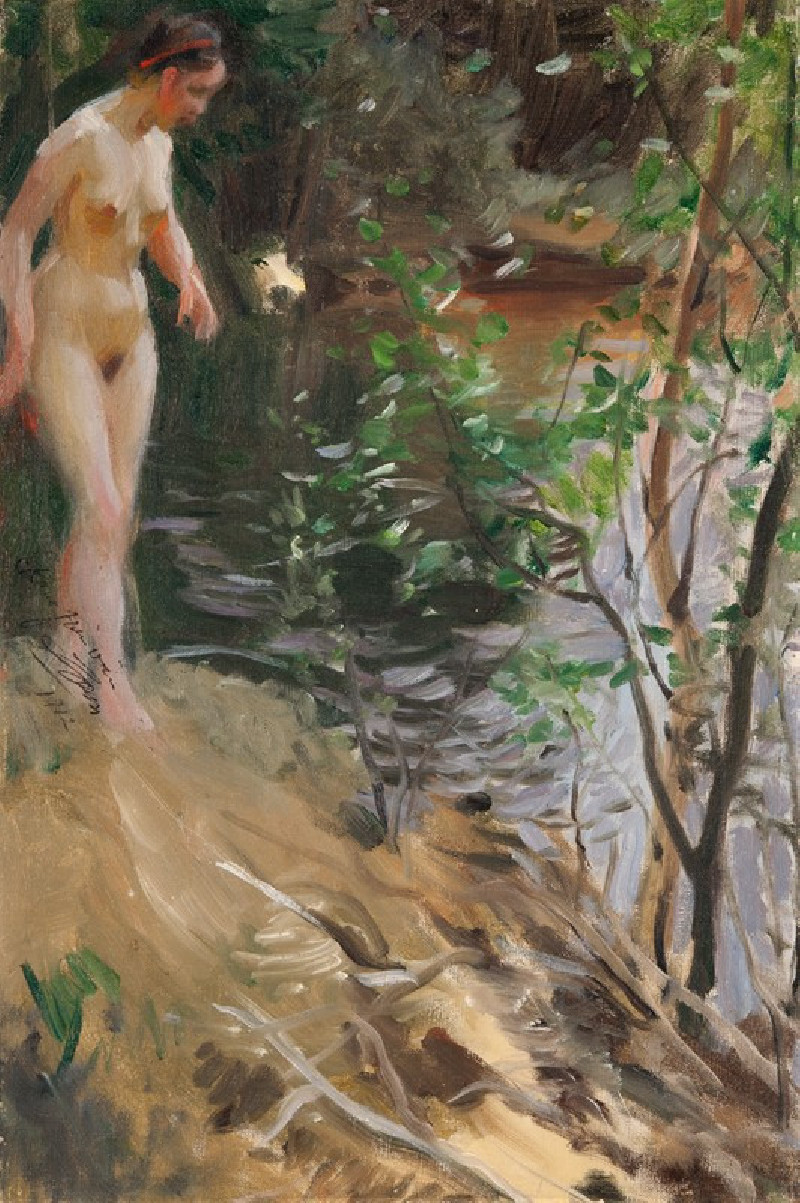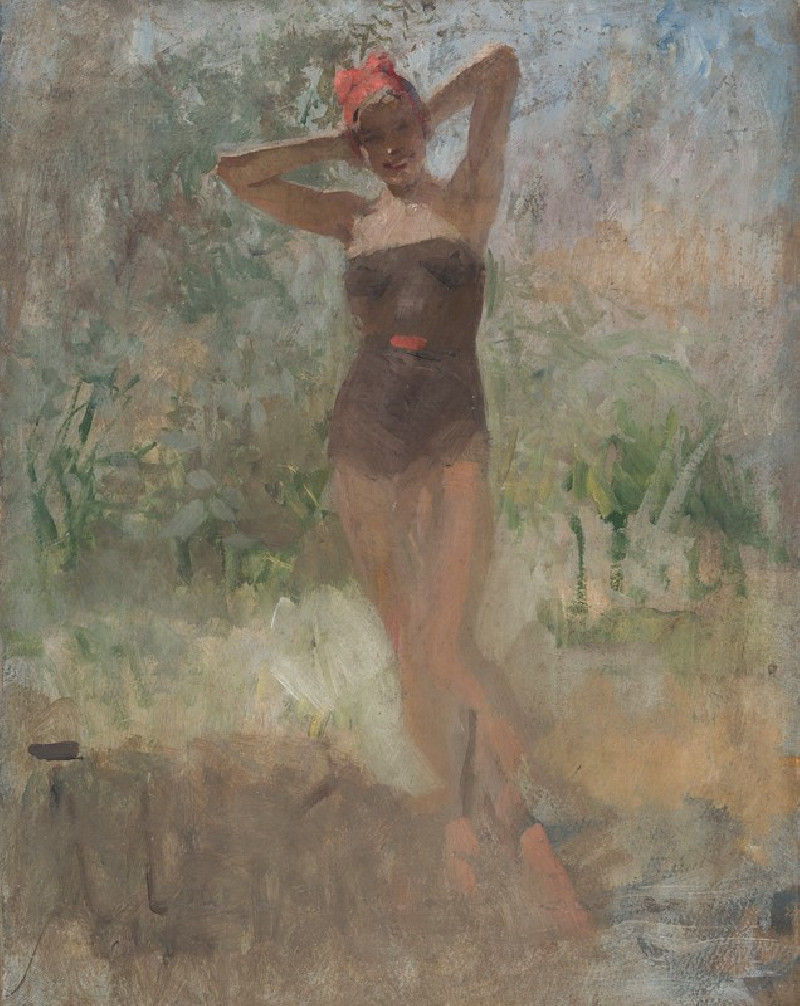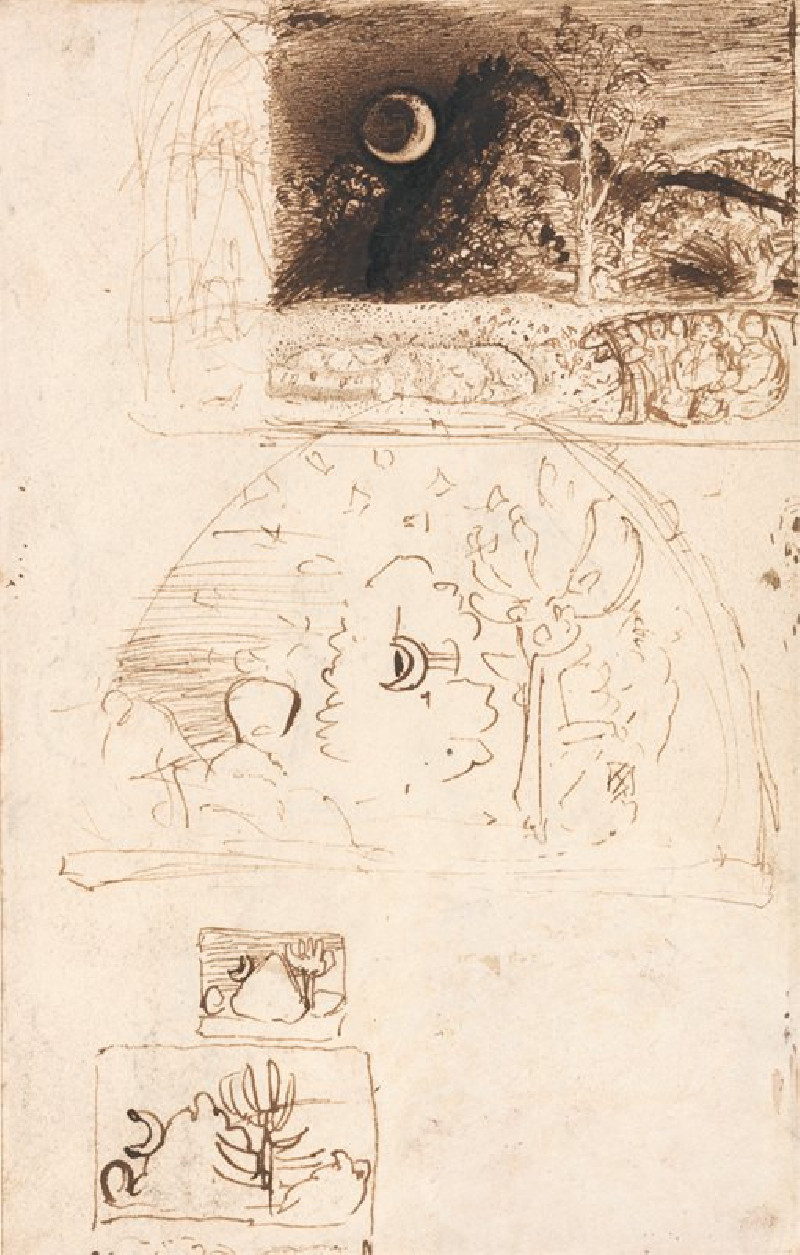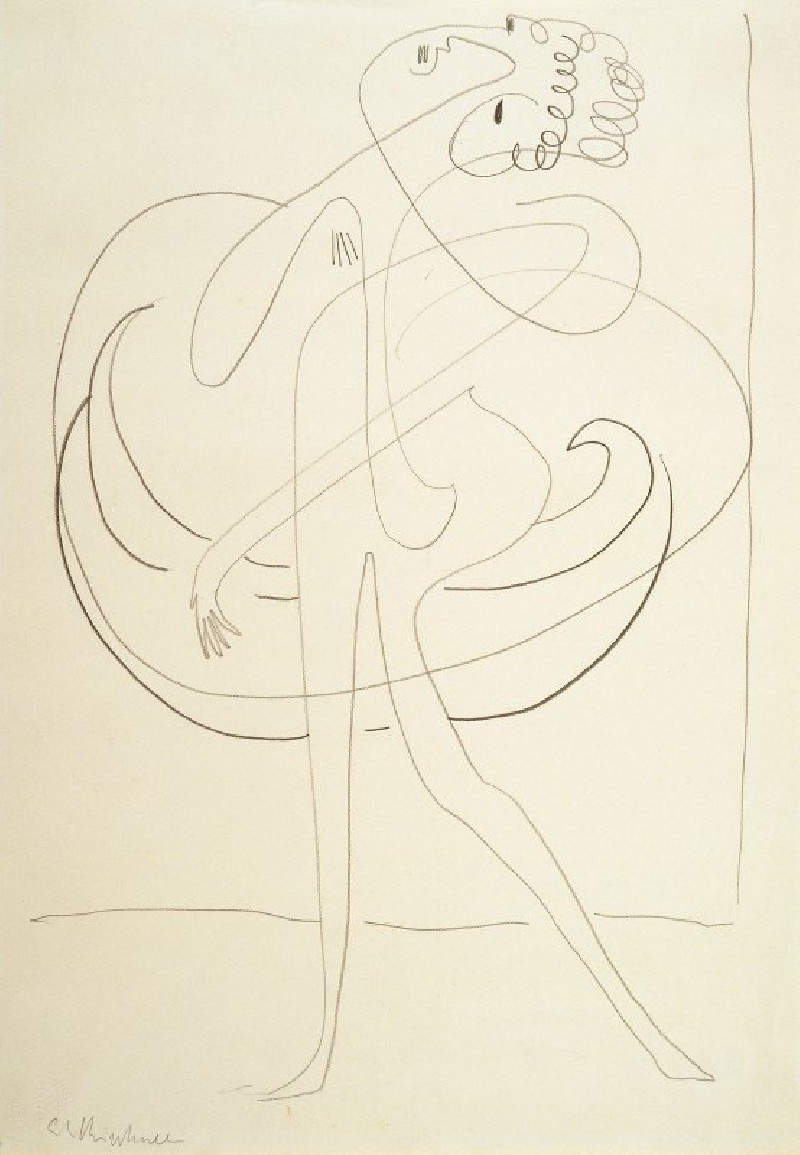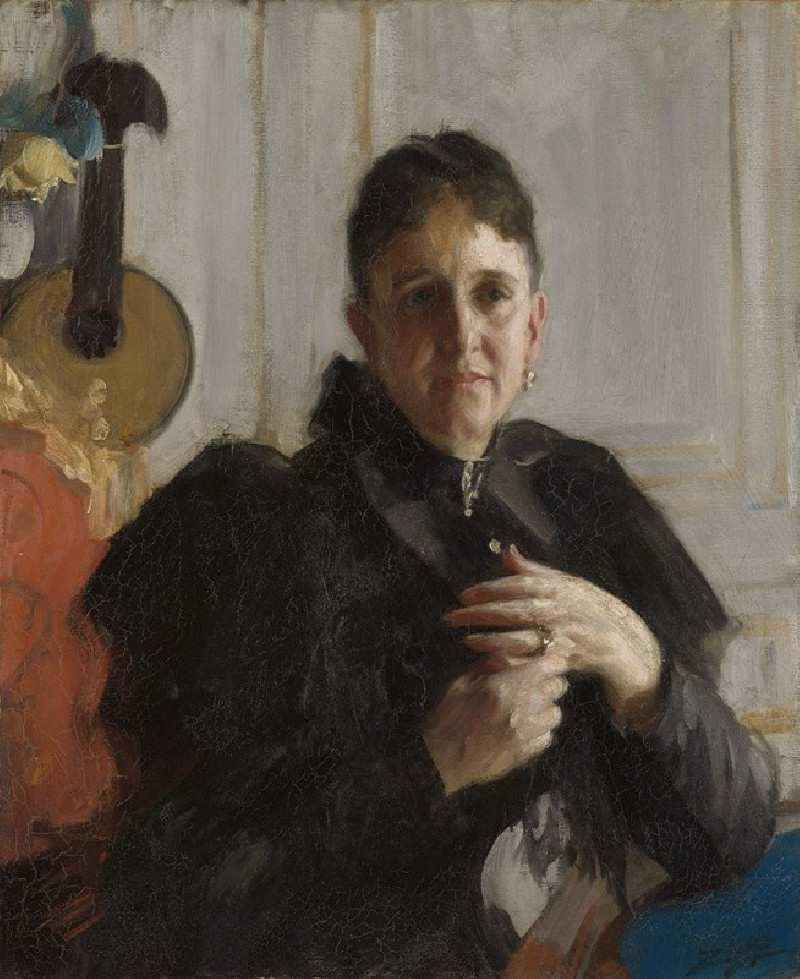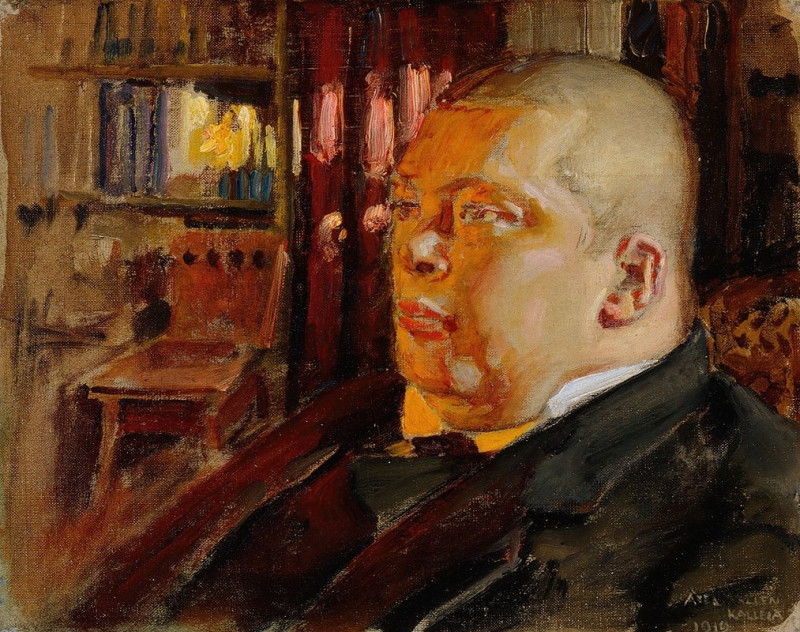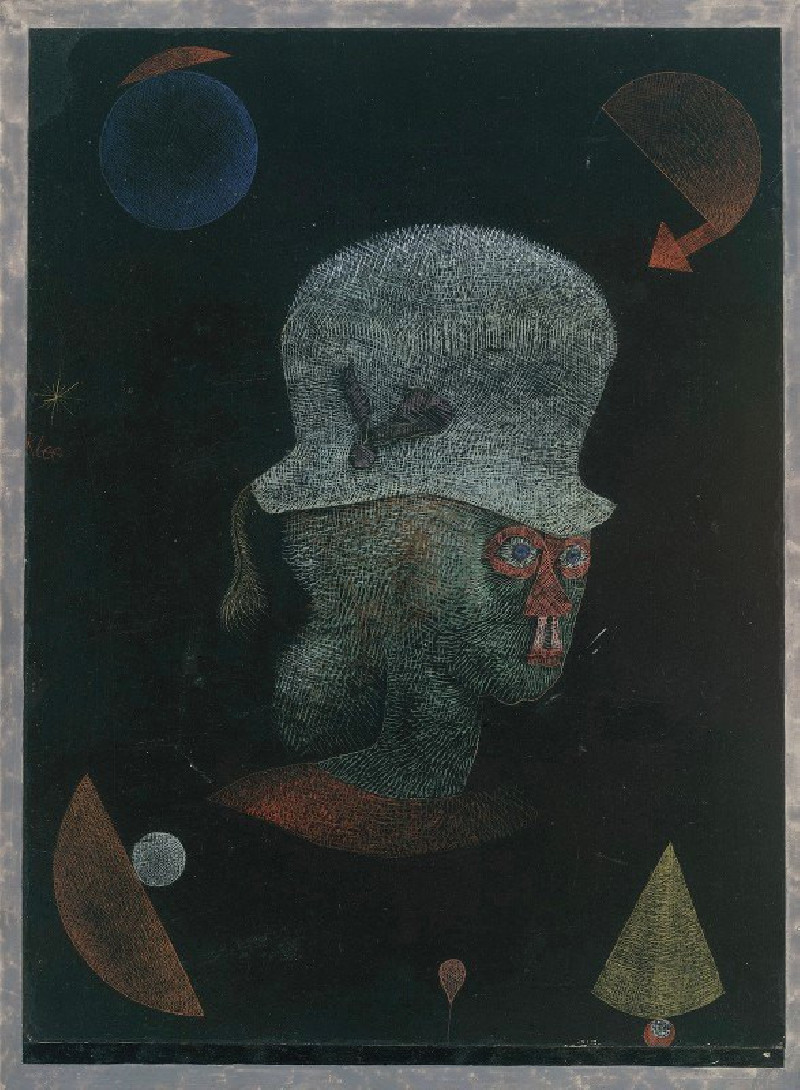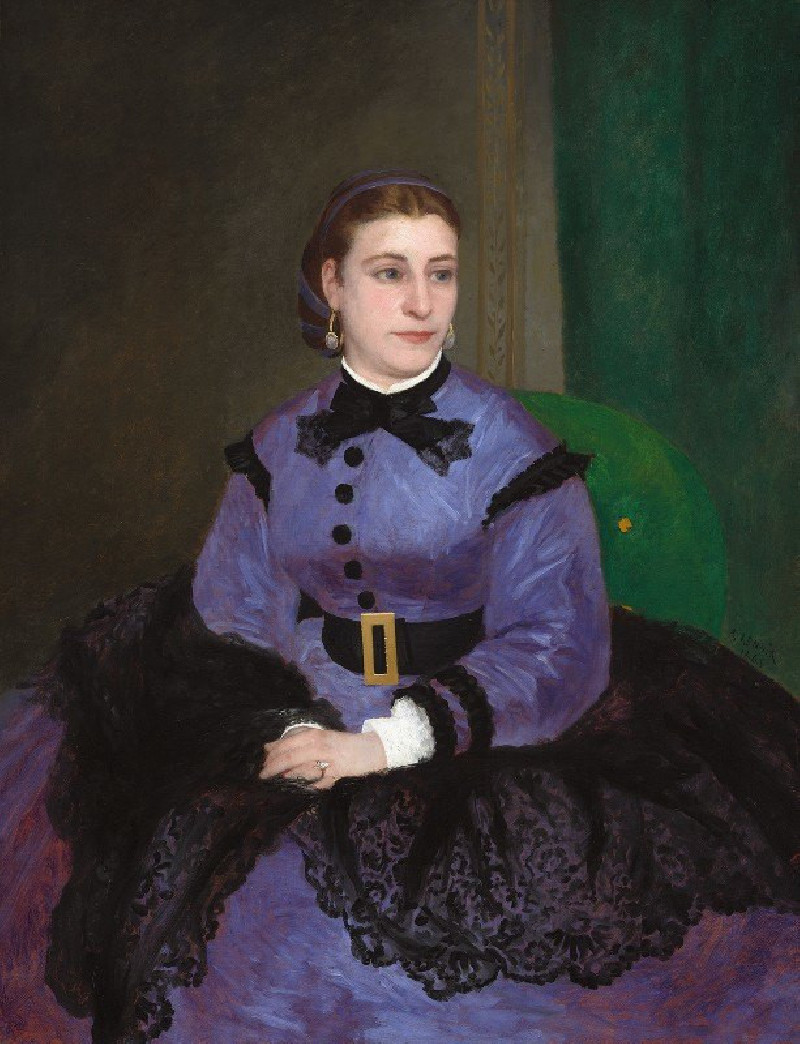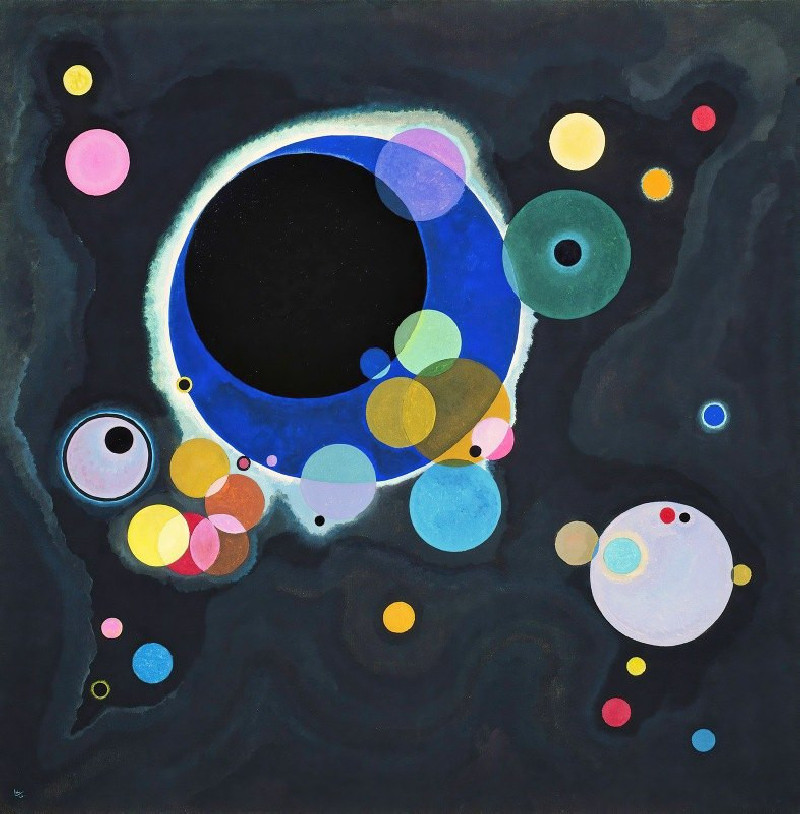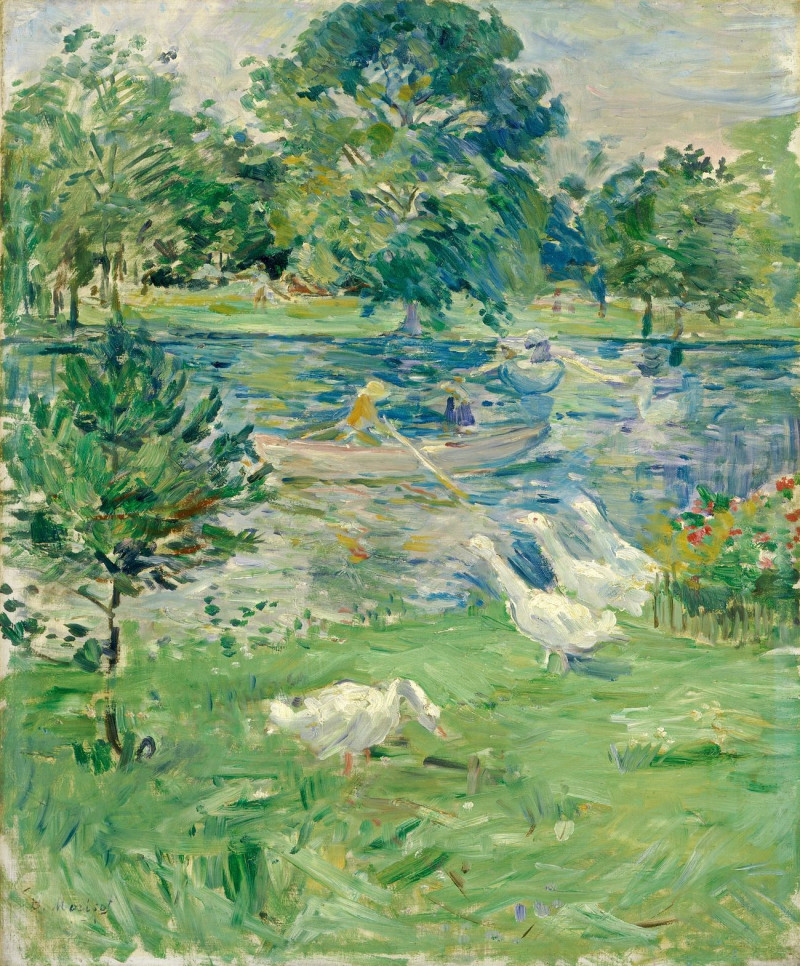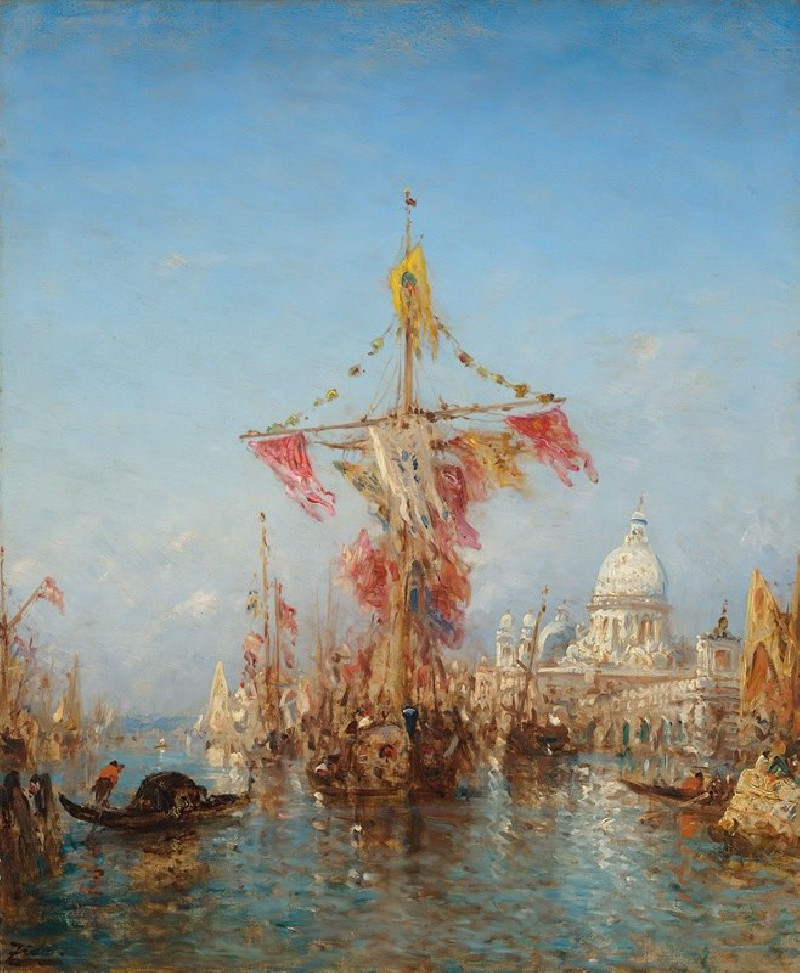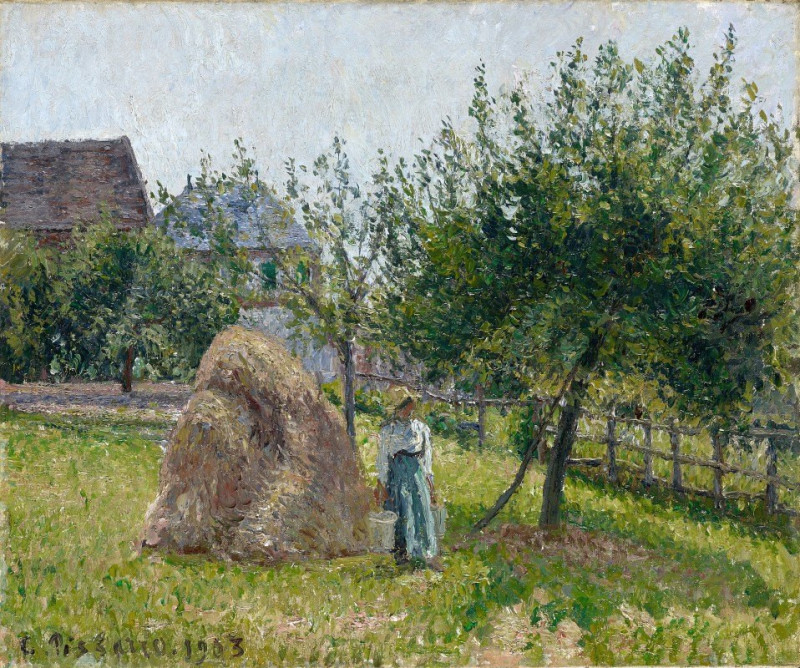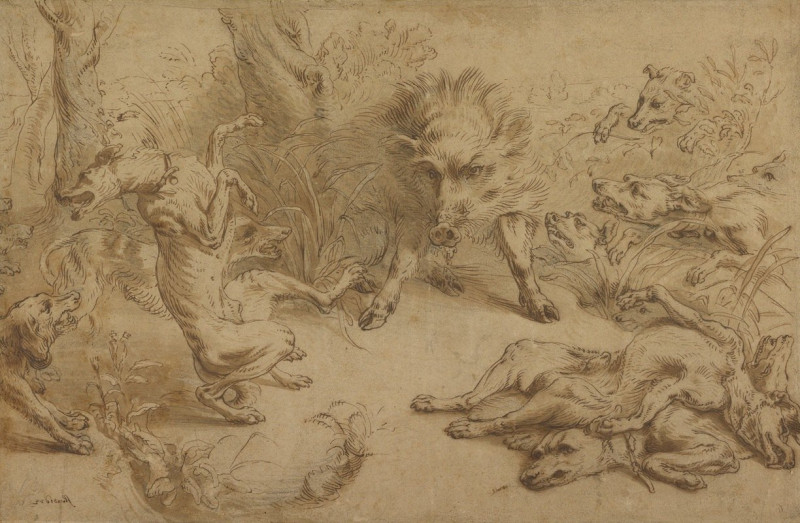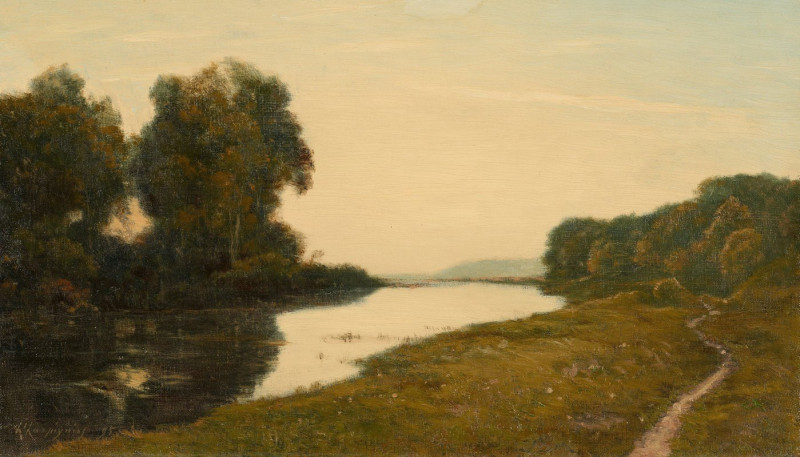Djos Mats (1911)
Technique: Giclée quality print
Recommended by our customers
More about this artwork
The artwork titled "Djos Mats" (1911) by Anders Zorn masterfully captures the refined essence of etching, showcasing Zorn's talent for embracing and rendering the human figure with striking depth. This print features an elderly man enveloped in what appears to be a reflective or thoughtful moment. His face, seasoned with age, bears a contemplative expression that subtly hints at a lifetime of experiences. Combining intricacy in line work with discernible care in the depiction of textural details such as his bushy eyebrows, flowing beard, and the soft feathers or fur lining his garment, Zorn not only creates a captivating portrait but also conveys a rich emotional tenor and a palpable sense of personal history. The accompaniment of sparsely placed elements in the background, including the faint crescent moon, adds a mystical layer to the piece, suggesting a blending of the earthly with the celestial.
Delivery
Returns
Anders Leonard Zorn (18 February 1860 – 22 August 1920) was a Swedish painter. He attained international success as a painter, sculptor, and etching artist. Among Zorn's portrait subjects include King Oscar II of Sweden and three American Presidents: Grover Cleveland, William H. Taft, and Theodore Roosevelt. At the end of his life, he established the Swedish literary Bellman Prize in 1920.

